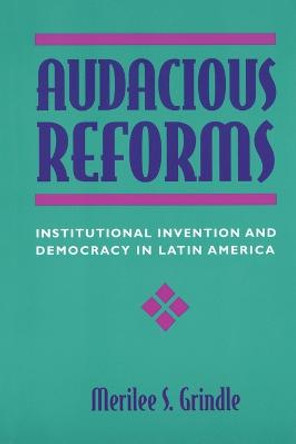This volume analyzes the function of informal institutions in Latin America and how they support or weaken democratic governance. Drawing from a wide range of examples-including the Mexican dedazo, clientelism in Brazil, legislative "ghost coalitions" in Ecuador, and elite power-sharing in Chile-the contributors examine how informal rules shape the performance of state and democratic institutions, offering fresh and timely insights into contemporary problems of governability, "unrule of law," and the absence of effective representation, participation, and accountability in Latin America. The editors present this analysis within a fourfold conceptual framework: complementary institutions, which fill gaps in formal rules or enhance their efficacy; accommodative informal institutions, which blunt the effects of dysfunctional formal institutions; competing informal institutions, which directly subvert the formal rules; and substitutive informal institutions, which replace ineffective formal institutions.
About the AuthorGretchen Helmke is an assistant professor of political science at the University of Rochester. Steven Levitsky is the John L. Loeb Associate Professor of the Social Sciences at Harvard University.
ReviewsOne of the most interesting and illuminating works on Latin American politics to appear in recent years. -- Joe Foweraker Journal of Latin American Studies 2007 Rich in empirical material and in provoking theoretical questions. -- Julian Durazo Herrmann European Review of Latin American and Caribbean Studies 2007
Book InformationISBN 9780801883521
Author Gretchen HelmkeFormat Paperback
Page Count 368
Imprint Johns Hopkins University PressPublisher Johns Hopkins University Press
Weight(grams) 499g
Dimensions(mm) 229mm * 152mm * 20mm










